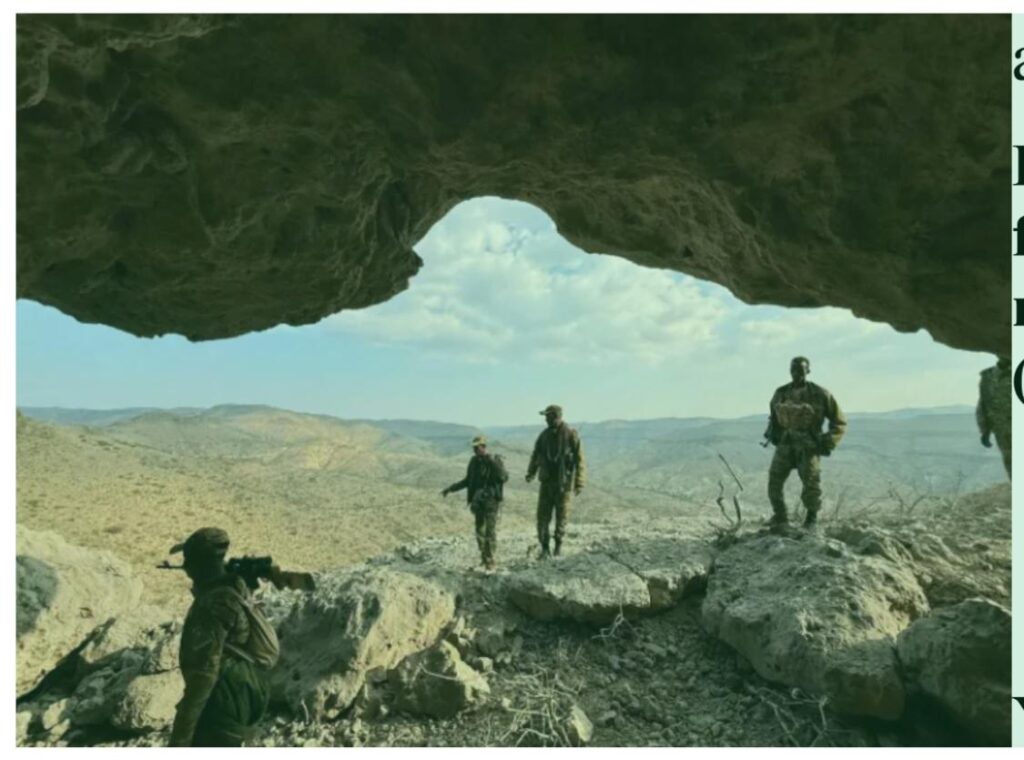Puntland is facing a dangerous surge in self-proclaimed politicians—individuals who lack meaningful credentials, relevant experience, or a record of public service. Driven by personal ambition rather than a commitment to the common good, they have turned to spreading baseless accusations, divisive rhetoric, and outright lies in a bid to gain political relevance and public attention. Their toxic narratives not only distract from critical national issues but also risk undermining the fragile stability Puntland has worked so hard to maintain.
A particularly harmful example of this behaviour is the conspiracy theory that foreign companies are secretly mining valuable minerals in Puntland’s mountains. This claim, repeatedly circulated without credible evidence, has gained traction across social media, talk shows, and informal gatherings. It fosters an atmosphere of suspicion, resentment, and division—poisoning public discourse and creating unnecessary tension within communities. The real danger lies not only in the spread of misinformation but in the potential for such falsehoods to incite unrest, weaken social cohesion, and divert attention from urgent priorities like counterterrorism.
This toxic rhetoric directly undermines the critical fight against terrorism—especially the struggle against ISIS. For years, Puntland has been at the forefront of Somalia’s battle against extremism, enduring attacks and violence at the hands of terrorist groups. Despite these challenges, Puntland’s Defence Forces (PDF) have shown immense courage and dedication, risking their lives to drive ISIS militants from villages, towns, grazing lands, and remote mountain areas. These brave men and women, many of them young, have left behind their families and futures to confront a formidable enemy with limited resources but unwavering resolve. Their sacrifices form the backbone of Somalia’s struggle for peace and security.
Yet, their efforts are undermined by pseudo-politicians who, in their relentless pursuit of personal gain, erode trust in legitimate institutions, fracture the sense of shared purpose within society, and create openings for extremist groups to exploit. By spreading lies and casting doubt on critical national efforts, they weaken public confidence, fragment communities, and make the task of defeating terrorism far more difficult.
The consequences of this behaviour are severe. Misinformation diverts public attention and resources away from counterterrorism efforts, sows confusion, and fuels division. It also undermines trust in political leaders and security institutions, opening the door for extremist propaganda to take root. Moreover, it deepens existing political, regional, and clan divisions, further destabilizing the already fragile social fabric of Somalia.
This crisis demands urgent and decisive action. The justice system must hold accountable those who deliberately spread false information for political gain or to incite unrest. Enforcing the law rigorously and impartially is essential to safeguarding national security, public trust, and the integrity of public discourse. Accountability is not about silencing dissent—it is about protecting the unity and resilience of Somali society.
Equally important is the need to build societal resilience through education. Schools, universities, and community organizations must equip young Somalis with the skills to evaluate information critically, distinguish fact from fiction, and make informed decisions. Media literacy campaigns should be launched across Puntland and Somalia to help citizens resist misinformation and disinformation. The media itself must uphold professional standards, ensuring that reporting is based on verified facts rather than rumours or sensationalism.
The rise of pseudo-politicians and the deliberate spread of misinformation pose a serious threat to the stability, security, and future of Somalia. Their actions undermine the sacrifices of those fighting on the front lines against terrorism, fracture the unity of Somali society, and create an environment where extremist groups can thrive. Puntland’s government, judicial system, media, educators, and the public must work together to confront this challenge head-on. Holding those who spread falsehoods accountable, promoting critical thinking, and refocusing national efforts on the fight against ISIS are essential steps toward a safer, more unified, and more prosperous Somalia.
It is time to reject the politics of division and deception. Instead, Somalia—and Puntland in particular—must champion truth, accountability, and collective responsibility. Only through unity, shared sacrifice, and a commitment to the common good can we build a stronger, more resilient Somalia for generations to come.
Cusmaan Cumar
cusmaancumar@gmail.com

